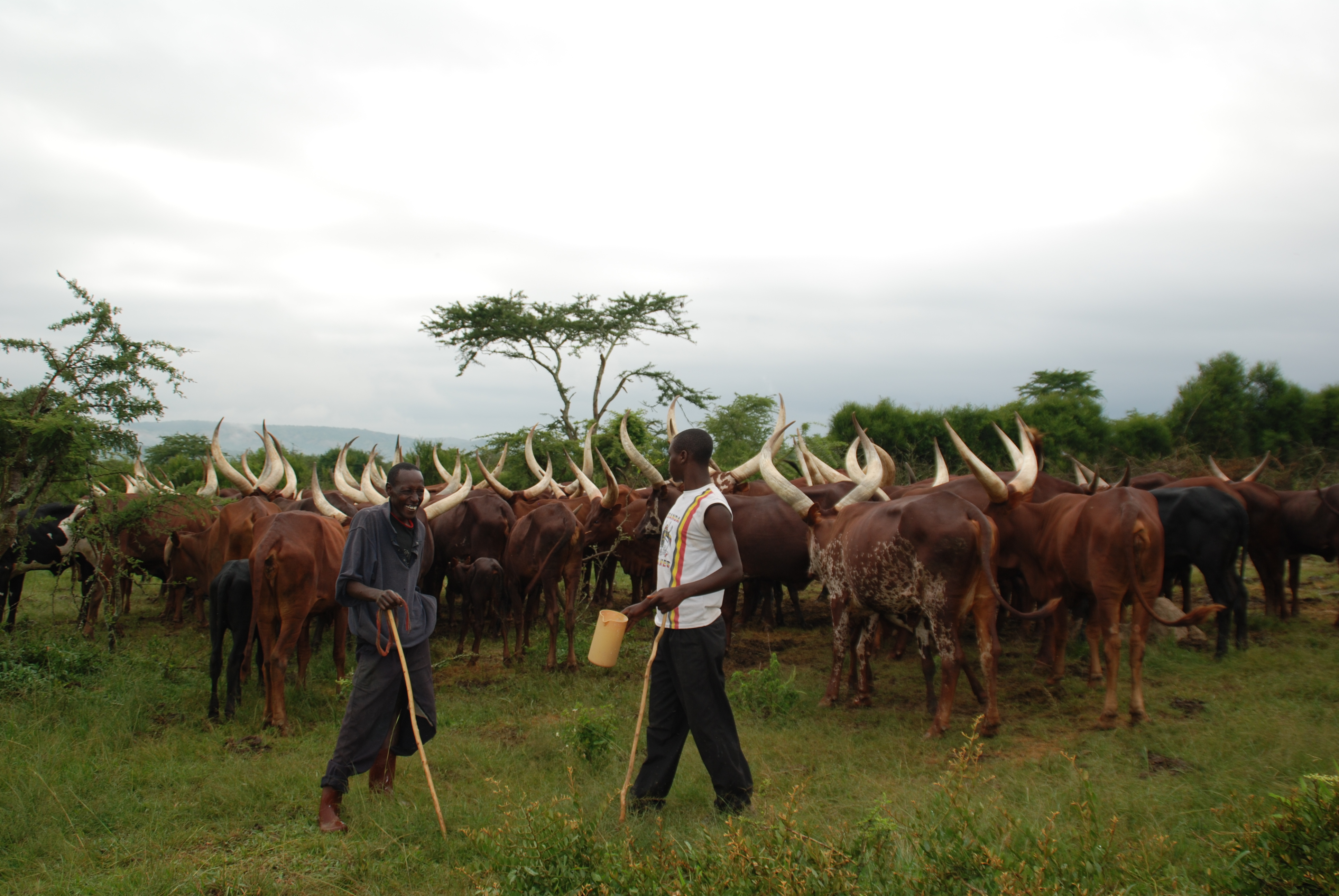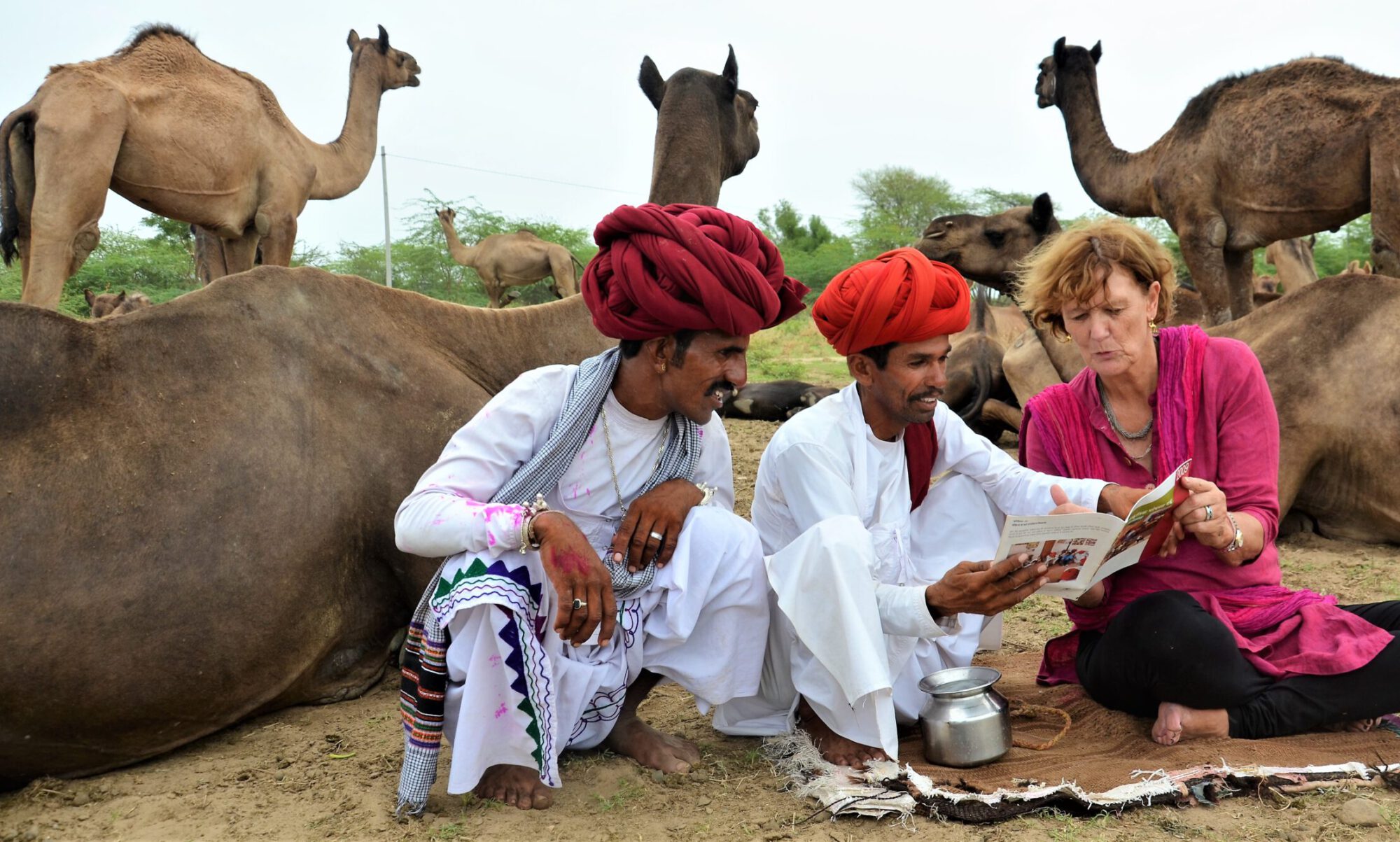
This is a question that we will have to give some thought if we want to arrive at fair and equitable livestock development. Most people that are involved in international policy processes seem to think small-scale livestock keepers are “private sector” – this appeared to be the consensus of the participants of the recent 14th IADG (Inter-Agency Donor Group) meeting held in Berlin from 22-24th May. The same stand is taken by the GAA (Global Agenda of Action towards sustainable livestock sector development) which does not regard livestock keepers as a separate stakeholder group and subsumes them under “private sector”.
And, of course, on one level, small-scale livestock keepers, such as the milk producers from Uganda pictured above, are “private sector”: producing meat and milk for their own benefit and profit, they are definitely small-scale rural entrepreneurs.
However livestock keepers themselves see this differently. My friend Elizabeth Katushabe, also an Ankole cattle breeder from Uganda, emphasizes that in her parlance, “private sector” is equivalent to “industrialists”.
And this is exactly the issue here. If we subsume pastoralists and other small-scale livestock keepers under “private sector”, they are lumped into the same group as the industrial livestock sector, represented by such actors as the International Feed Industry Federation, the International Egg Commission, the International Meat Secretariat, etc.
I think it is fair to say that there are few if any commonalities between these two types of actors and that their interests may even be at cross-purposes. The vast majority of livestock keepers just want to make a decent living and be able to give their children some education. They try to achieve this by minimizing their expenditure on inputs, by making social arrangements for access to pastures and by sharing resources and labour with their neighbours and relatives. The industries however thrive on high input systems, pursue economies of scale, engage in cut throat competition, and, in the final analysis, only care about the bottom line.
Well, according to Charles Darwin, there are lumpers and splitters, when it comes to classifications and taxonomy. I think I am definitely a splitter in this case, as I can not see the similarities between small-scale livestock keepers that are often still mired in a moral economy and struggle for their livelihoods on one side and globally operating multinational companies on the other.
The two groups are too distinct in their needs, their resources, their priorities and especially their worldview and agency to be lumped together. For fairness and justice, they must be represented as distinct stakeholder groups in the context of sustainable livestock development and the processes that hopefully lead us there.

 Follow
Follow